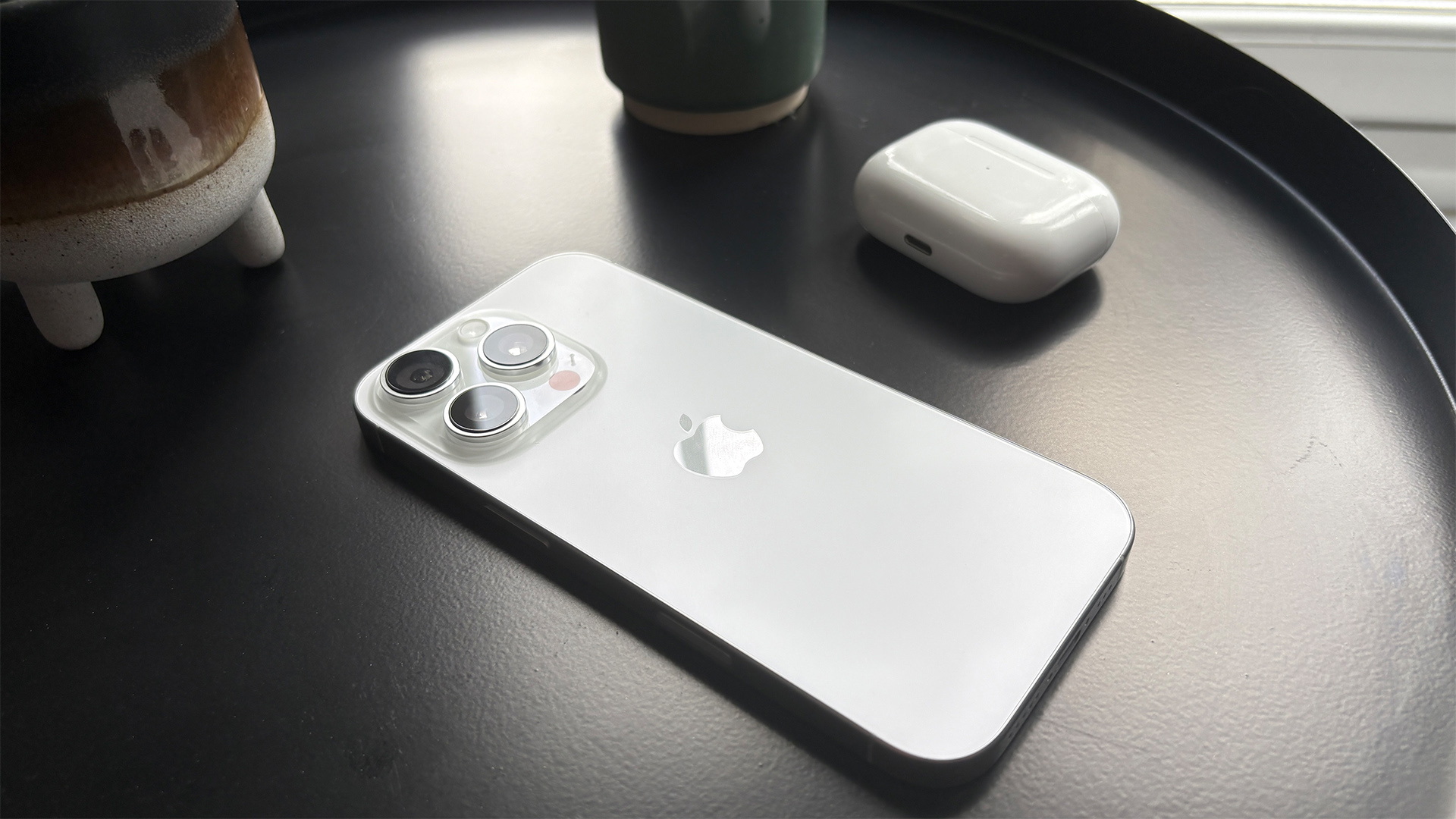LG C1 vs LG CX: which is the best LG OLED TV?
Should you pay more for the new version of LG's famous C-series OLED?
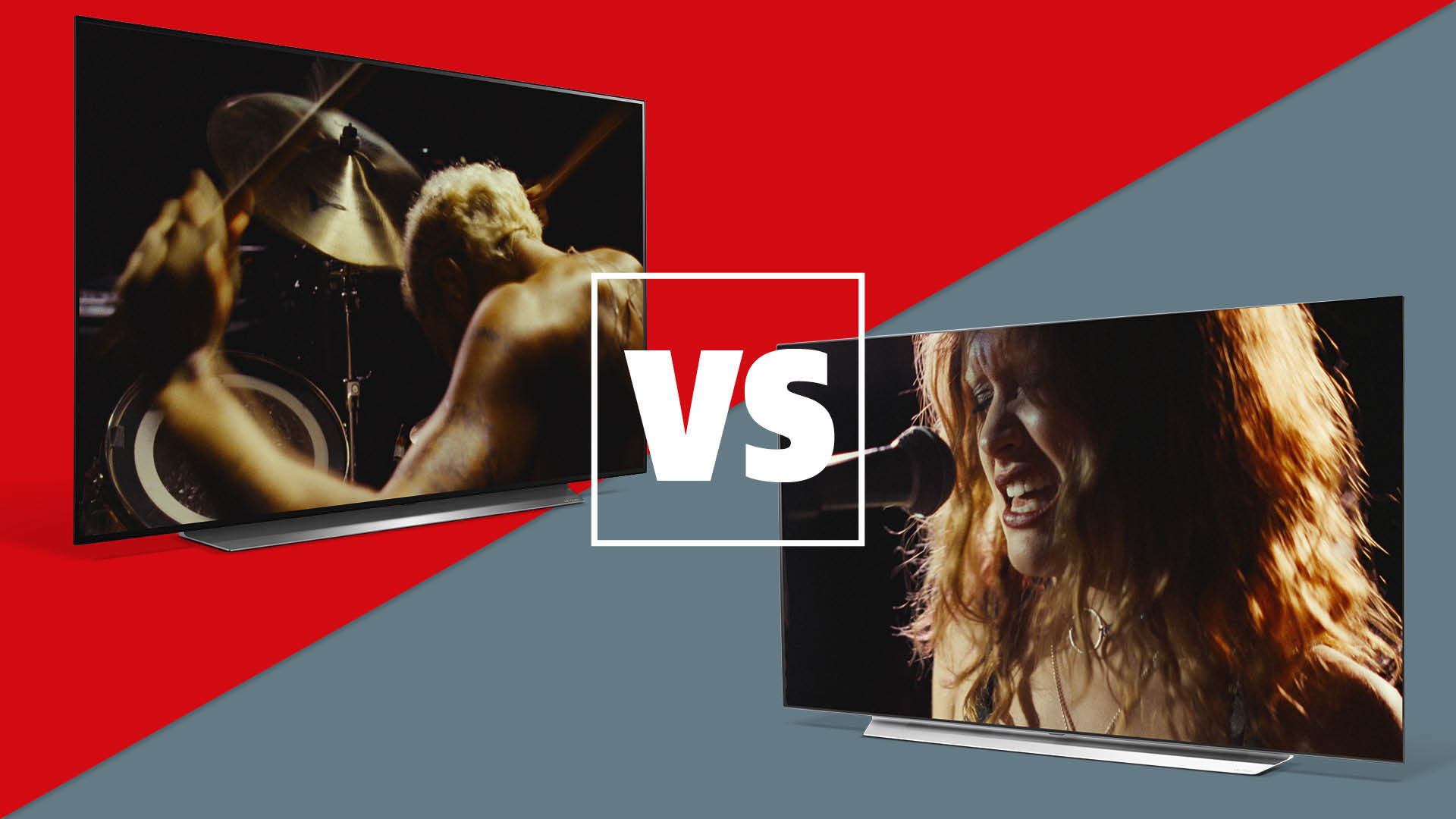
Earlier this year the LG C1 OLED replaced the LG CX OLED. Both models deliver stunning picture quality and impressive smart technology – but which is the better 4K TV? Should you buy the new C1, or save some money and pick up an older CX? And if you've already got a CX, should you consider upgrading to the C1?
We've reviewed both the C1 and the CX, so we're intimately familiar with both of these 4K OLED TVs. But before we get into the various pros and cons of each set, here's a quick preview...
In 2020, the most affordable way to get LG's top panel and picture processing tech was to buy the CX, and its excellent picture quality and peerless feature set rightfully turned it into a huge success.
Twelve months on, the C1 appeared with a new processor, software and user-interface but a very familiar design and overall feature set.
On paper and in person, the two sets seems very similar, and that might suggest that you'd be best off saving some money and buying the older CX (while you still can).
As ever, though, appearances and spec sheets can be deceiving, so let's delve into the nitty-gritty of design, features, apps, picture quality, audio performance and more to work out which is the best C-class LG OLED for you. Will it be the LG C1 or the LG CX.
LG C1 vs LG CX: price
The C1 is part of the LG 2021 TV line-up. It's relatively new so prices have remained firm. It's available in five sizes including a new 83-incher:
LG OLED48C1: £1499 ($1500, approx AU$2800)
LG OLED55C1: £1699 ($1800, approx AU$3100)
LG OLED65C1: £2499 ($2500, approx AU$4500)
LG OLED77C1: £3999 ($3800, AU$8495)
LG OLED83C1: £6999 ($6000, approx AU$8000)
The LG CX offers the best balance of bang and 'buck in the LG 2020 TV line-up. It launched over a year ago so prices, which were very similar to those of the C1 at launch, have generally now dropped significantly. It's available in four sizes, and these are the prices at the time of writing:
LG OLED48CX: £1199 ($1400, AU$2795)
LG OLED55CX: £1199 ($1400, AU$3095)
LG OLED65CX: £1799 ($2000, AU$3995)
LG OLED77CX: £3199 ($3100, AU$7995)
Evidently, the CX is the more affordable of the two TVs right now but, if you're prepared to wait, the C1 will likely be discounted to very similar levels towards the end of its first year on sale. Of course, that means being very patient when you could get an excellent deal on a CX right now.
*Winner* LG CX
LG C1 vs LG CX: design and build
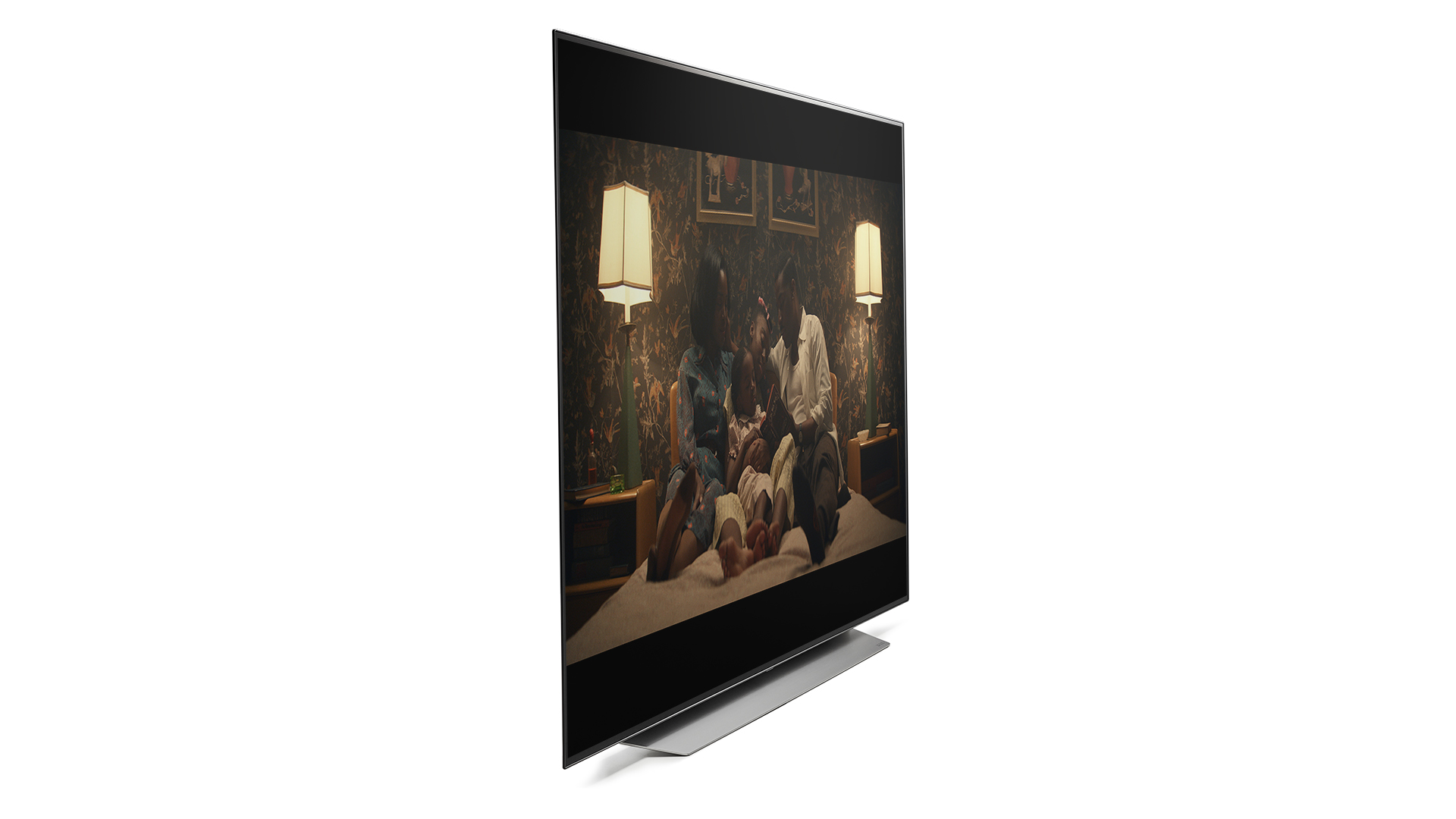
Aesthetically speaking, the LG C1 and LG CX are two peas in a pod. You'll struggle to tell them apart, but that's no bad thing – LG makes some of the slimmest OLED TVs in the business.
Viewed from the side, both sets have a thin panel section (about 3mm) and a thicker section that houses the connections and speakers, each an overall depth of 4.7cm. They both have the same pedestal stand, too, which is elegant but also wide and low, making the overall footprint wider than some furniture and potentially creating issues for those looking to add a soundbar.
Both models can be wall-mounted using standard TV wall mounts but neither set will sit flush to the wall. If you want that effect, you'll need to splash the cash on one of LG's pricier 'Gallery Series' sets (namely the 2021 LG G1 or 2020 LG GX).
Colours vary between the CX and C1 – and between different versions of each – but otherwise the sets are visually identical, so there's no winner or loser here.
*Winner* Draw
- LG C1 vs LG G1: should you buy the OLED Evo-powered G1?
LG C1 vs LG CX: features
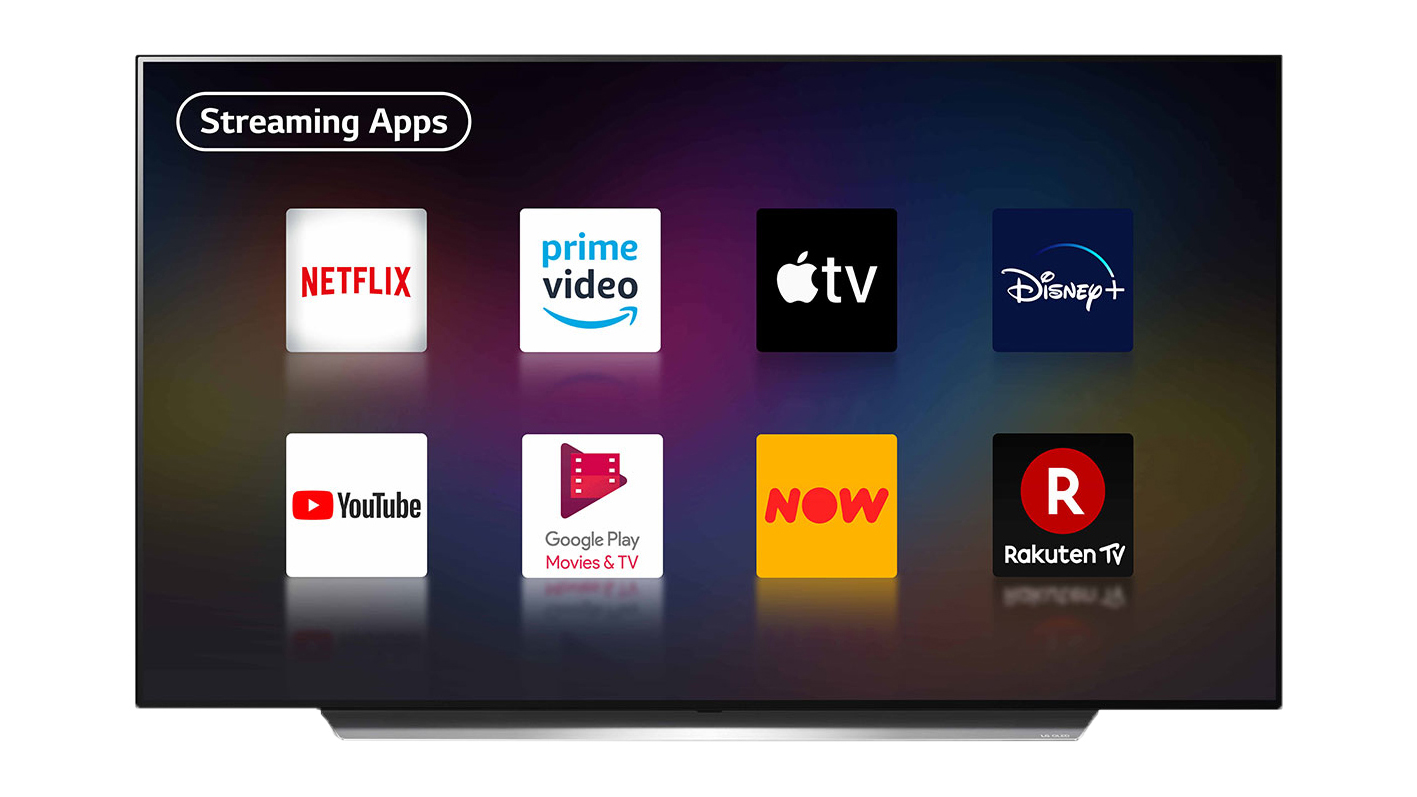
Both these TVs boast superb 4K OLED panels. OLED panels don't need a backlight, which means they can be ultra-thin, and because each pixel can be switched on and off individually, they tend to deliver superior black levels and an exceptionally realistic picture.
The C1 has a nippier chip, too. It comes with LG's latest Gen 4 AI-enhanced processor, which brings improvements to de-contouring and dynamic tone mapping, which LG says results in better contrast. The new processor is also said to be more effective when upscaling standard definition content.
Both models have four HDMI 2.1 sockets that support 4K@120Hz, VRR and ALLM, and there's an HGIG setting that can help you get the most accurate contrast from HDR games. Both also have super-low input lag of around 13ms (the C1 also has an Input Lag Boost mode that’s designed to bring the input lag of 60Hz games down to just 9.6ms, but we weren't able to get this working during testing). In short, both TVs rank among the best gaming TVs out there (especially if you want to max out the performance of your PS5 or Xbox Series X). However, unlike the CX, the C1 has a new 'Game Optimiser' interface that puts gaming-specific tweaks at your fingertips.
There's parity in terms of HDR formats, with both supporting HDR10, HLG and Dolby Vision (including Dolby Vision IQ), but not the competing HDR10+ format.
As for apps, the two TVs support Netflix, Amazon Prime Video, Disney+ and Apple TV, all with full support for 4K, Dolby Vision and Dolby Atmos. There's also Google Play Movies & TV (for now) with HDR10 and 5.1, plus Sky's Now service in the UK.
However, the CX is missing Freeview Play and lacked all of the UK's core catch-up apps at launch. Even now, it only features the BBC iPlayer and ITV Hub streaming services, whereas the newer C1 has the full set.
The user interface is different, too, with the C1 getting the new webOS 6.0 and the CX stuck on webOS 5.0. The main difference here is that pressing 'Home' on the CX overlays a row of apps and sources over whatever it is you're watching, whereas the same button on the C1 takes you to a new, full-screen homepage, which in some ways sounds like a retrograde step. Ultimately, which you prefer will come down to personal preference, but the snappiness and logical layout of the webOS 6.0 homepage means we've found ourselves missing the old webOS 5.0 bar less than expected.
In terms of wireless connections, the C1 and CX both sport Apple AirPlay 2 and Bluetooth. There's also built-in support for Google and Alexa voice assistants, making it easy to integrate your TV into a smart home set-up.
Finally, the C1 comes with a newer LG Magic Remote. It's slightly thinner than its predecessor and features plenty of shortcuts to take you to your favourite streaming services. The handy pointer functionality of the previous Magic Remote remains.
Ultimately, there are very few differences in the feature sets of these two TVs, but the slightly enhanced processor, more complete app selection (at least for the UK) and handy Game Optimiser mean the C1 just pips the older CX.
*Winner* LG C1
LG C1 vs LG CX: picture quality
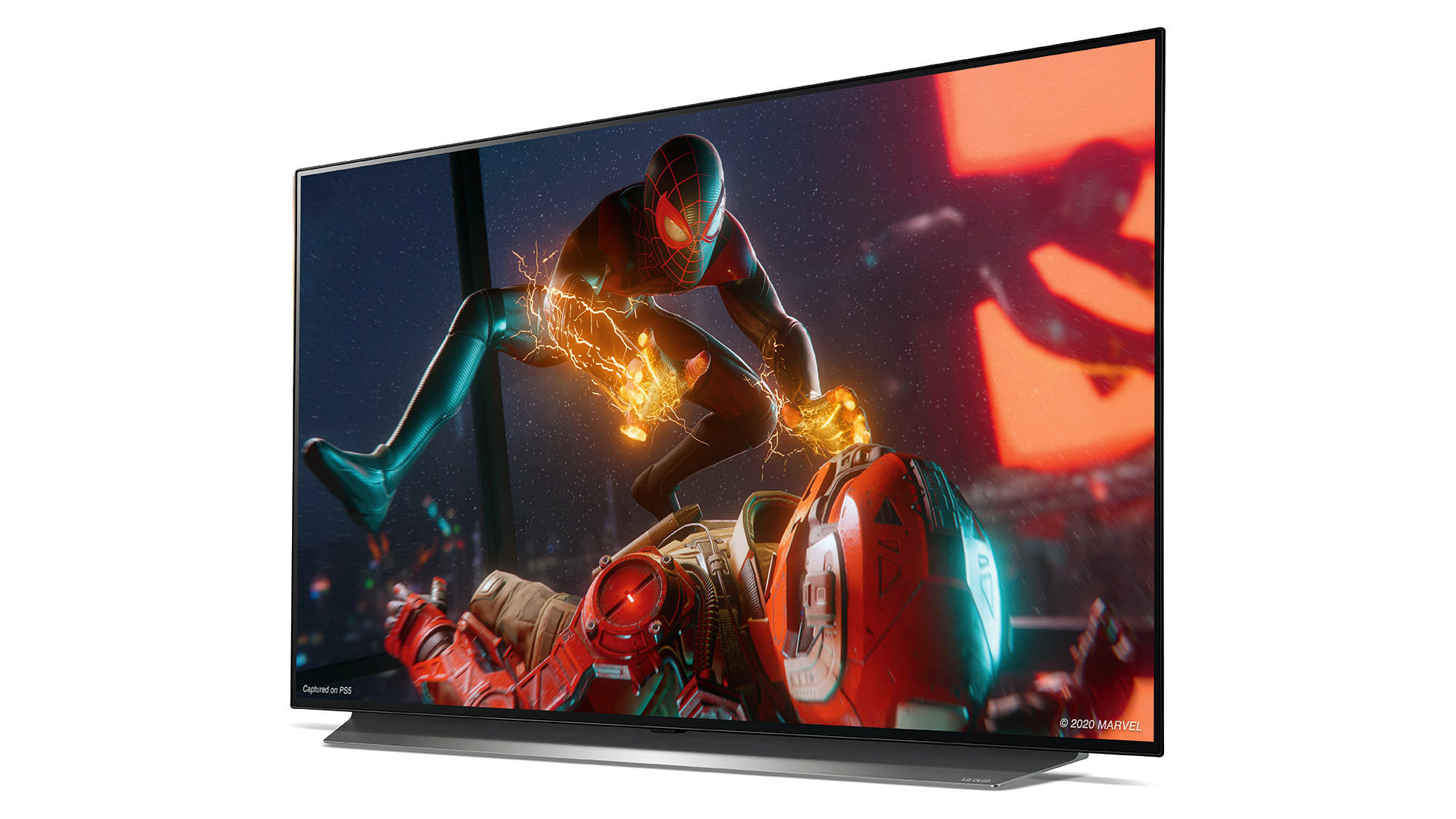
The C1's performance is very similar to that of last year's CX. Which is to say, excellent.
There have been a few upgrades, most notably to the motion processing (the new Cinematic Movement option is very good) and de-contouring (banding is noticeably reduced), but by and large the C1 offers the same exemplary performance as its predecessor.
Both TVs deliver Dolby Vision content in vibrant, crisp and detailed fashion, and the perfectly deep blacks of OLED are equally awesome on both sets. HDR10 movies and TV shows are fantastically punchy and sharp, too.
With standard-def content the C1 skews slightly brighter than the CX and reveals a touch more dark detail, but we're talking about fairly small margins here, too.
In short, the C1 isn't a massive step up in picture quality over the CX, but it didn't really need to be, and the small improvements that have been made are worthwhile, particularly if you're someone who's typically sensitive to motion processing.
If you want an LG TV that provides a bigger step up in picture quality, there is now an option for you: the more expensive LG G1, which features a new OLED Evo panel for an even brighter and sharper picture.
*Winner* LG C1
LG C1 vs LG CX: sound quality
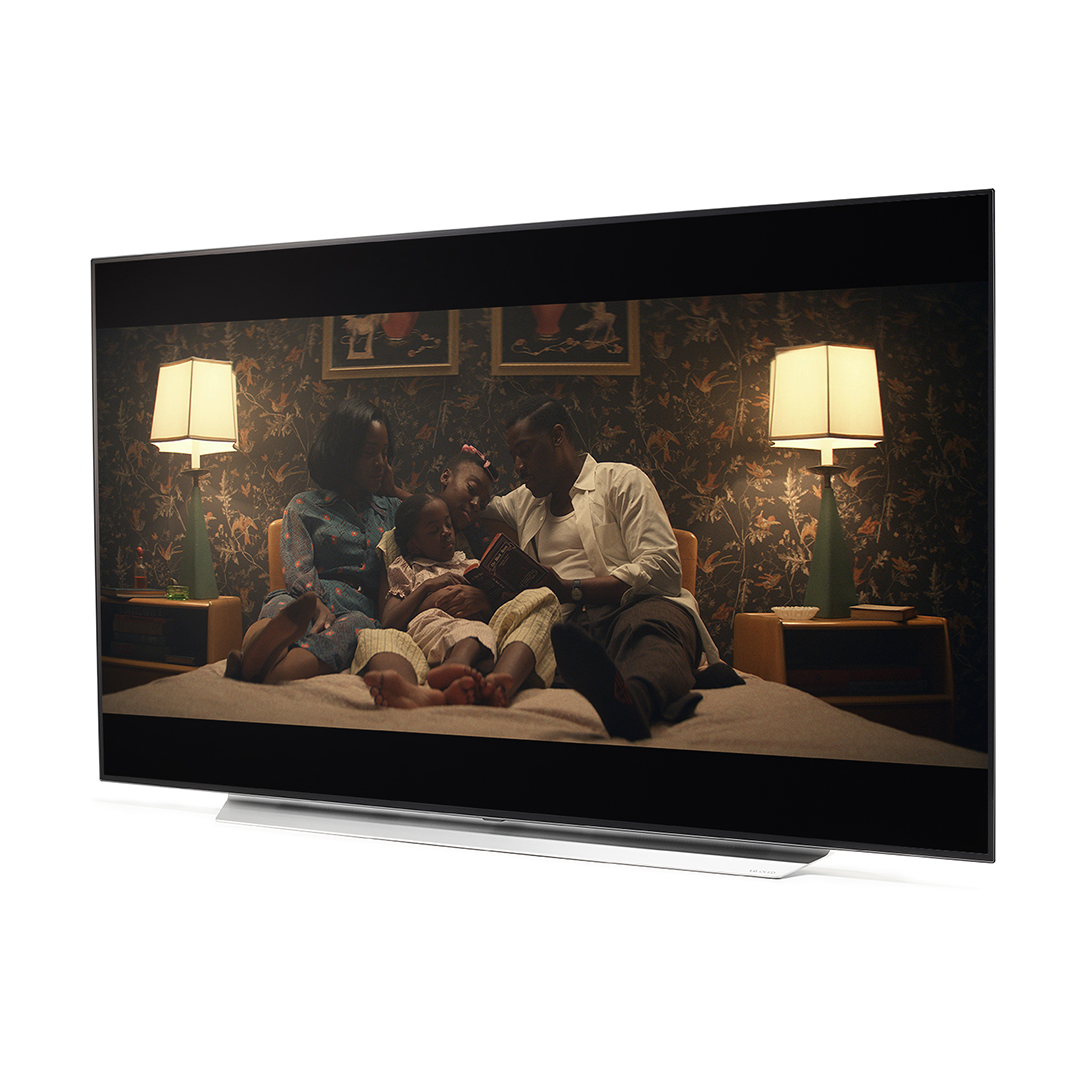
The LG C1 gets the same speaker set-up as the CX, albeit with new processing technology. The result is a cleaner sound that is more open and spacious, giving everything a more cinematic feel, particularly when Dolby Atmos is enabled.
On the downside, the C1's sound is less punchy and dynamic than that of its predecessor, and that makes it a little less exciting. Those who prioritise smoothness over excitement will be drawn to the C1, but it's a shame that the CX's enthusiasm has been sacrificed. Perhaps next year's model will combine the best of both.
Whichever of these two TVs you ultimately end up buying, we strongly suggest that you also budget for a separate Dolby Atmos soundbar or surround sound system – just as we do with the vast majority of the TVs we review. But if you're determined to stick with your new TV's built-in speakers, both are decent but in different ways.
*Winner* LG CX
LG C1 vs LG CX: verdict
While the LG C1 is undeniably better than the CX, winning in almost every category, its gains are marginal and the price difference, at least at the time of writing, is pretty large.
While not exactly scientific, we'd say that the C1's improvements are worth paying something in the region of an extra 10 per cent over the price of a CX. While the gap is wider than that, the CX represents the better buy, but do bear in mind that LG could reasonably be expected to support the C1 with software updates and new features for slightly longer than the CX.
If that doesn't worry you (LG does have a solid recent track record of offering ongoing support for its OLED models), the LG CX still offers flagship-level performance and features at a much reduced price, making it one of the very best TVs you can buy right now. Stock won't be around forever, though, so pounce soon to avoid disappointment (or a long wait for the C1 to hit similarly low prices).
*Overall winner* LG CX
MORE:
Save big with this week's best 4K TV deals
Our pick of the best OLED TVs
Get the What Hi-Fi? Newsletter
The latest hi-fi, home cinema and tech news, reviews, buying advice and deals, direct to your inbox.
What Hi-Fi?, founded in 1976, is the world's leading independent guide to buying and owning hi-fi and home entertainment products. Our comprehensive tests help you buy the very best for your money, with our advice sections giving you step-by-step information on how to get even more from your music and movies. Everything is tested by our dedicated team of in-house reviewers in our custom-built test rooms in London, Reading and Bath. Our coveted five-star rating and Awards are recognised all over the world as the ultimate seal of approval, so you can buy with absolute confidence.
-
vlans In my opinion, you'd have to be mad to buy another LG . I bought a CX55 on the strength of reviews ( wont do THAT again). The user interface is the worst that I have experienced - that stupid teardrop onscreen pointer that has to be continually re-centred, continually 'clicked' to show programme details ( which are incredibly slow to update, as is the initial loading of channels), plus you can't just click to go to the selected channel, it has to be done twice, and sometimes, for some reason thrice. If you highlight upcoming programmes to see what is on next and the current prog' ends, it goes to the next one. I could go on &on, but I'm sure you get my drift.Reply
Changing things such as subtitles is a 3 stage operation! even using voice control i.e. press voice, say "subtitles off", scroll to off click, go to X click. Very poor. On the Panasonic ( see below) just click subtitles -on - off, as simple as that.
What is all the hype on the thinness of tv's? Don't know about you, but I look at the front of the telly, find it more interesting than the side.
I had an ailing 35" telly , so I bought the LG to replace our 55" Panasonic which in turn replaced the 35"' now the Panasonic is back in its rightful place, and I am £1500 worse off, well, maybe £1000 if I'd got a 'small' TV.

